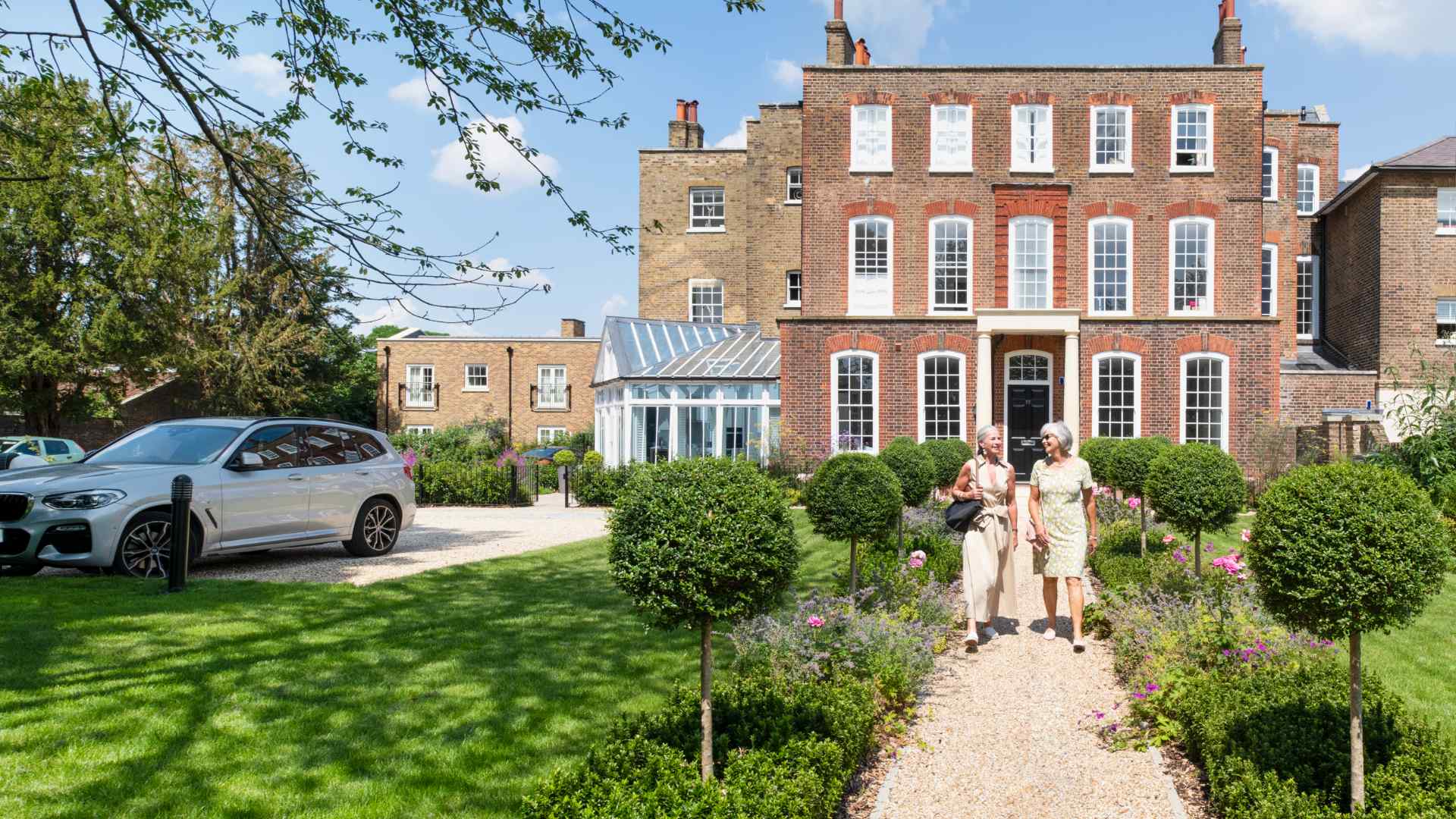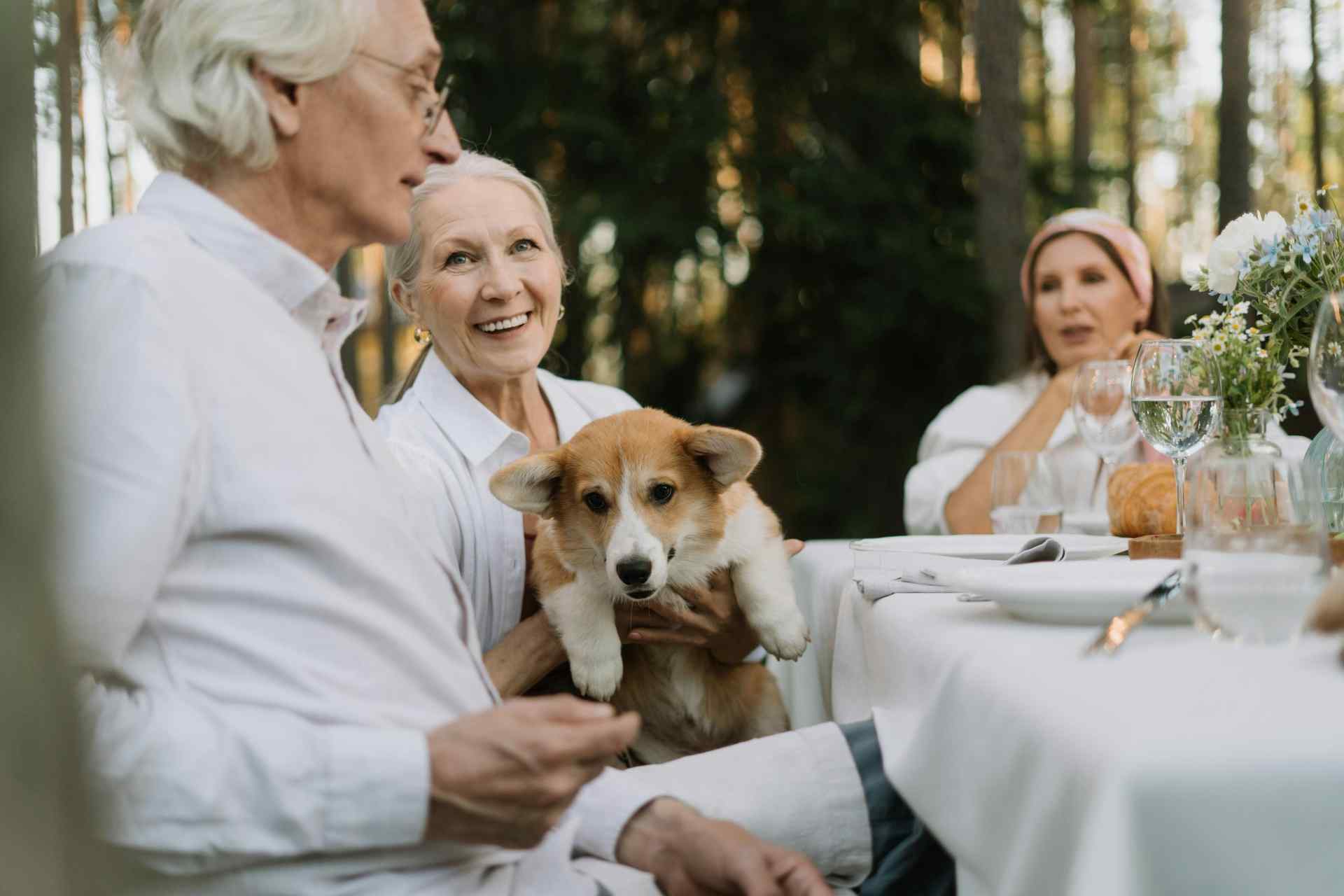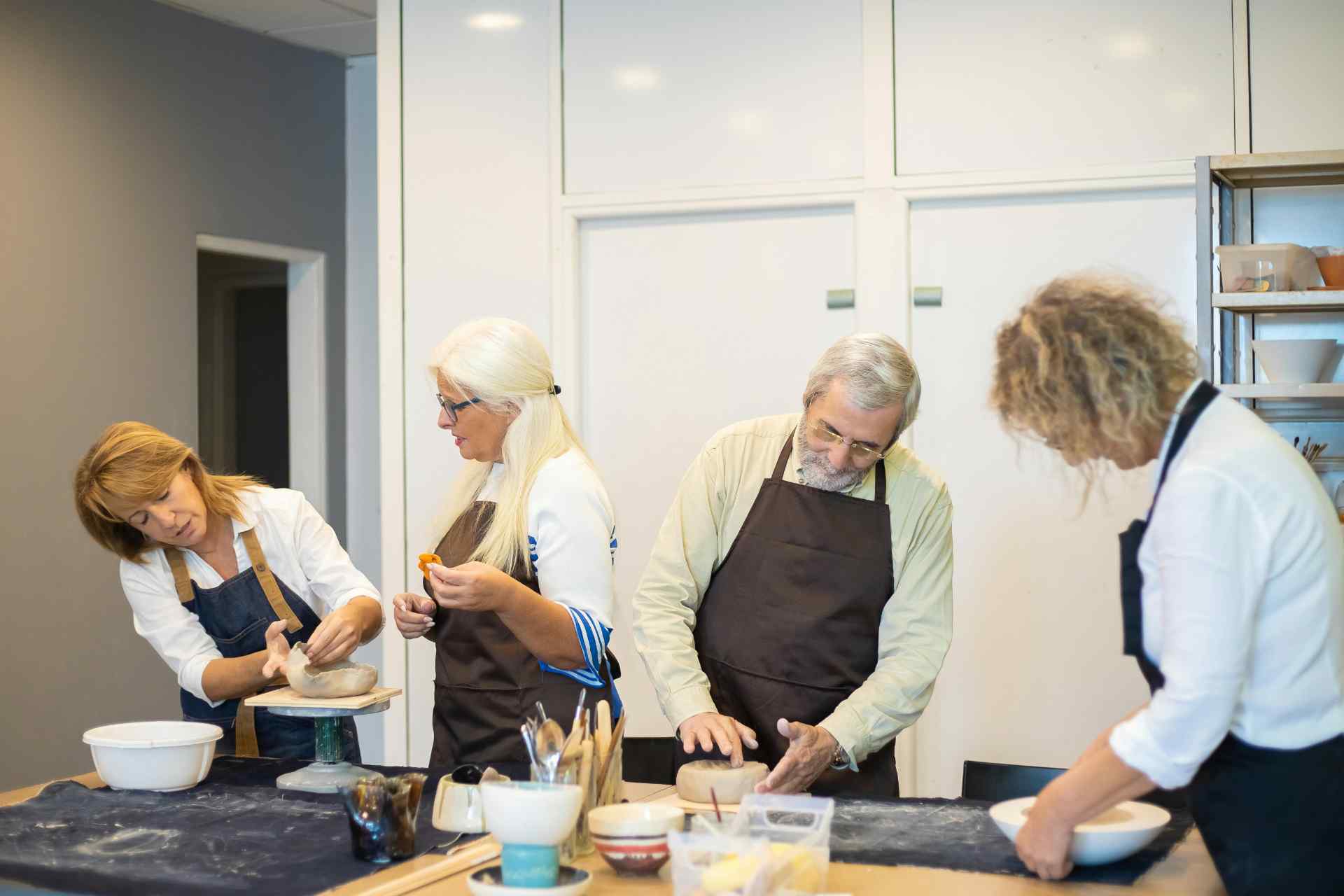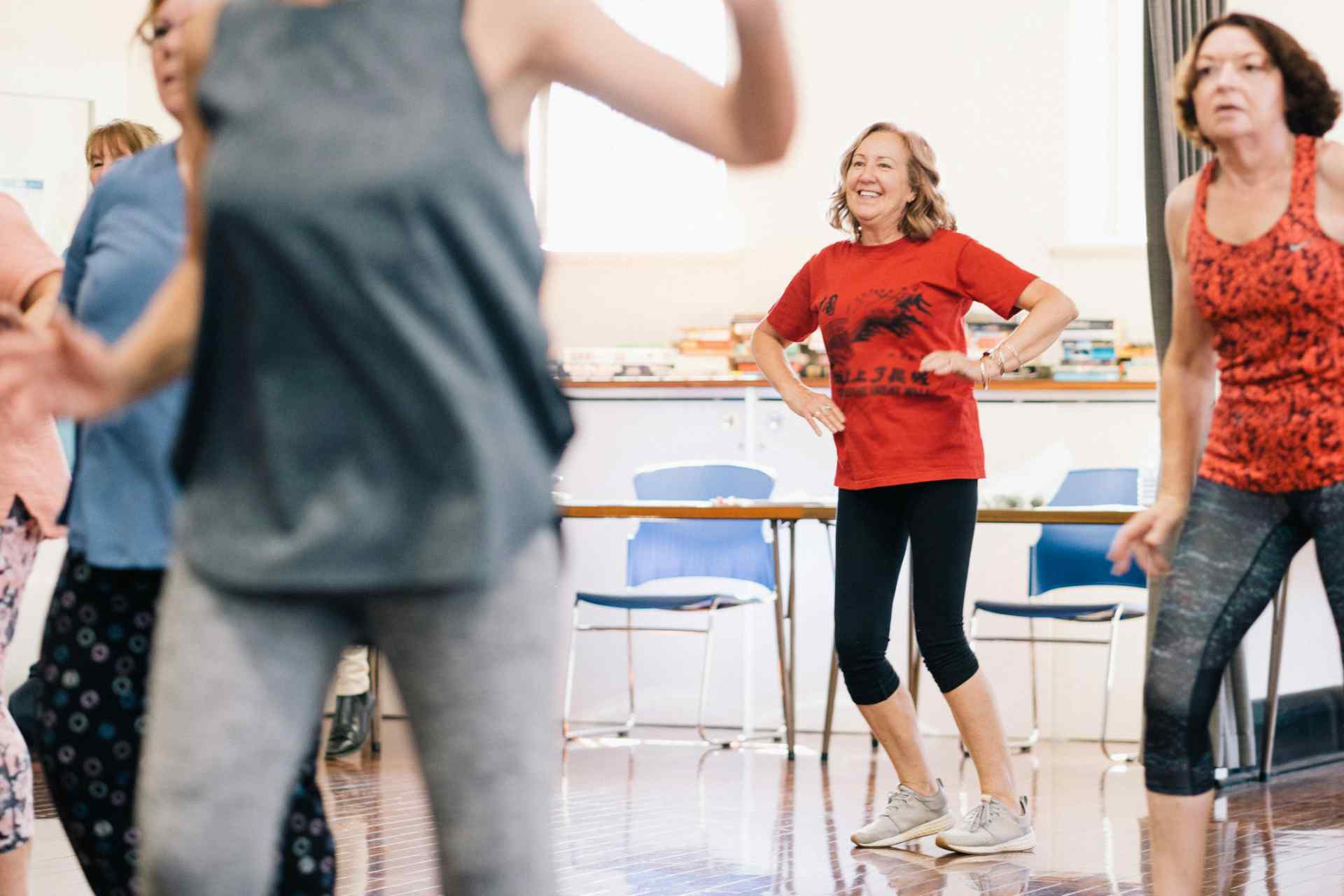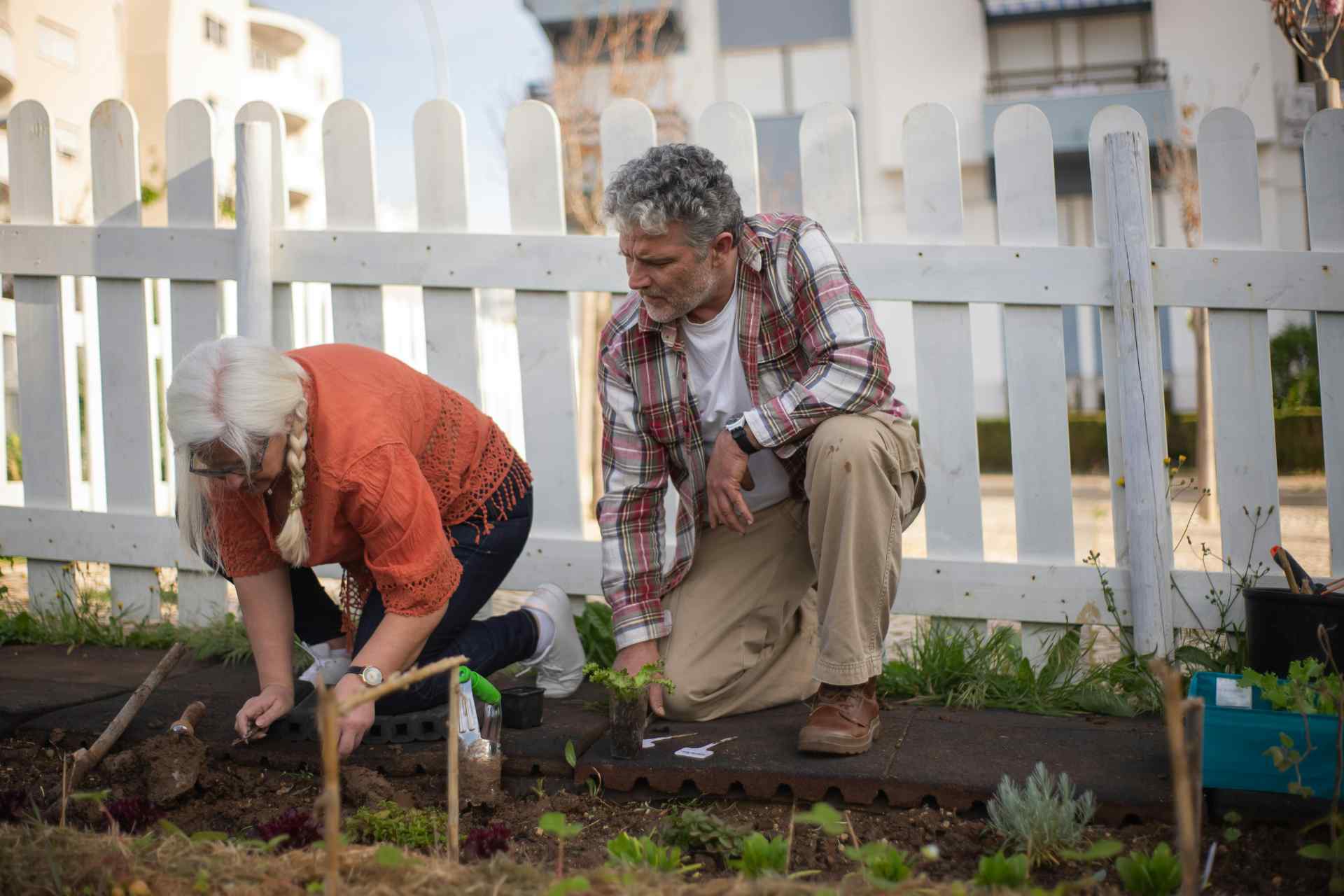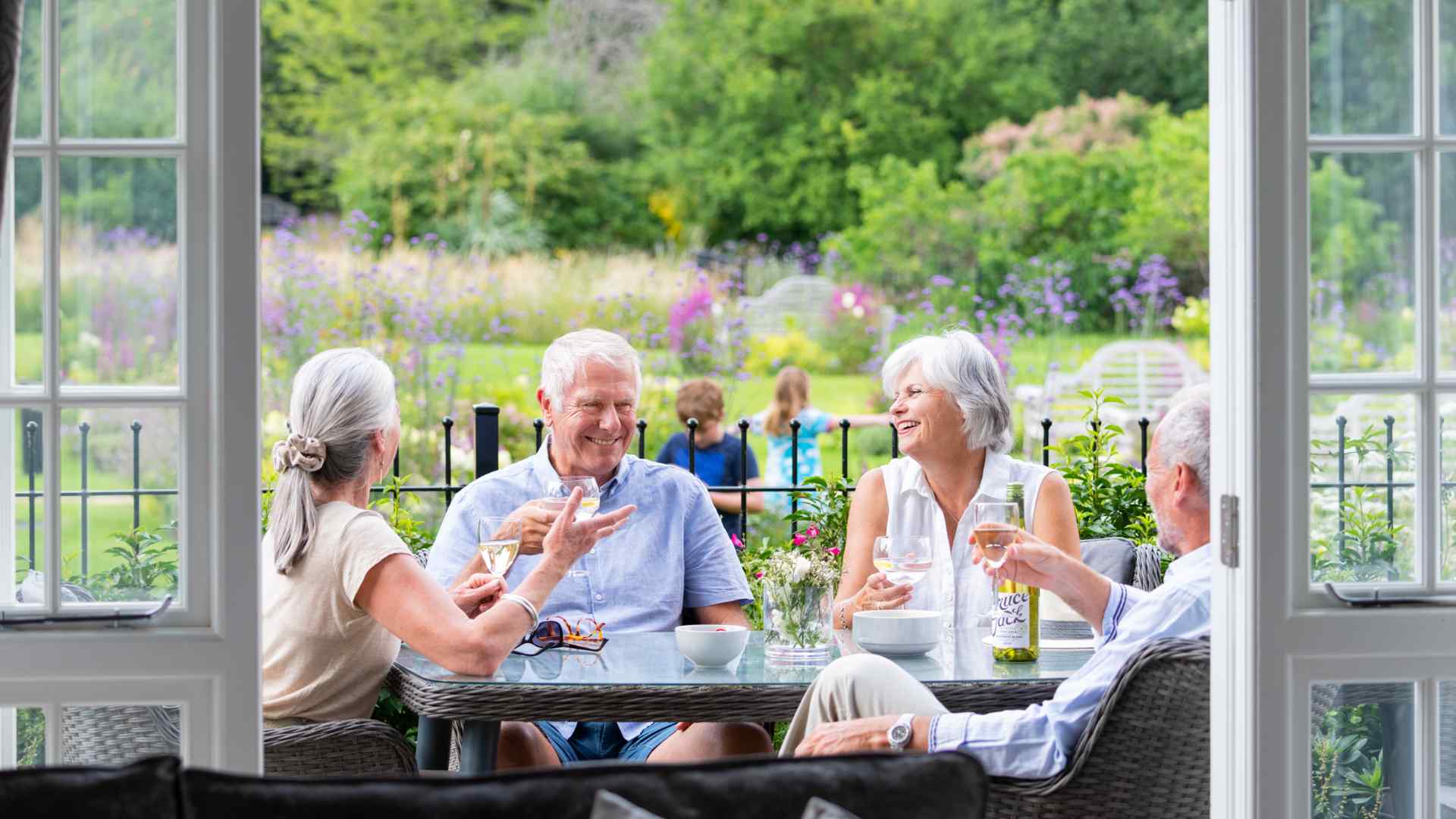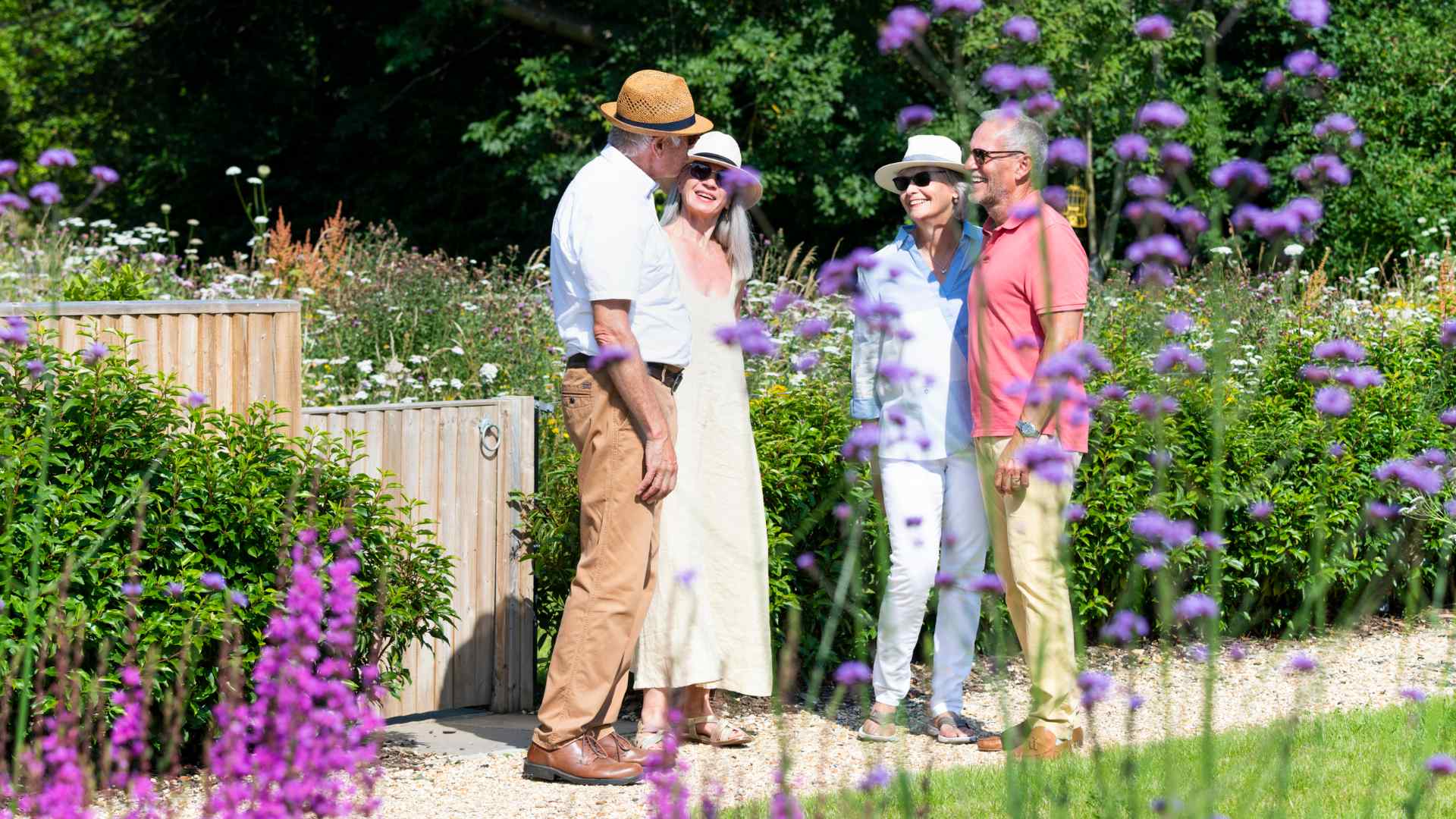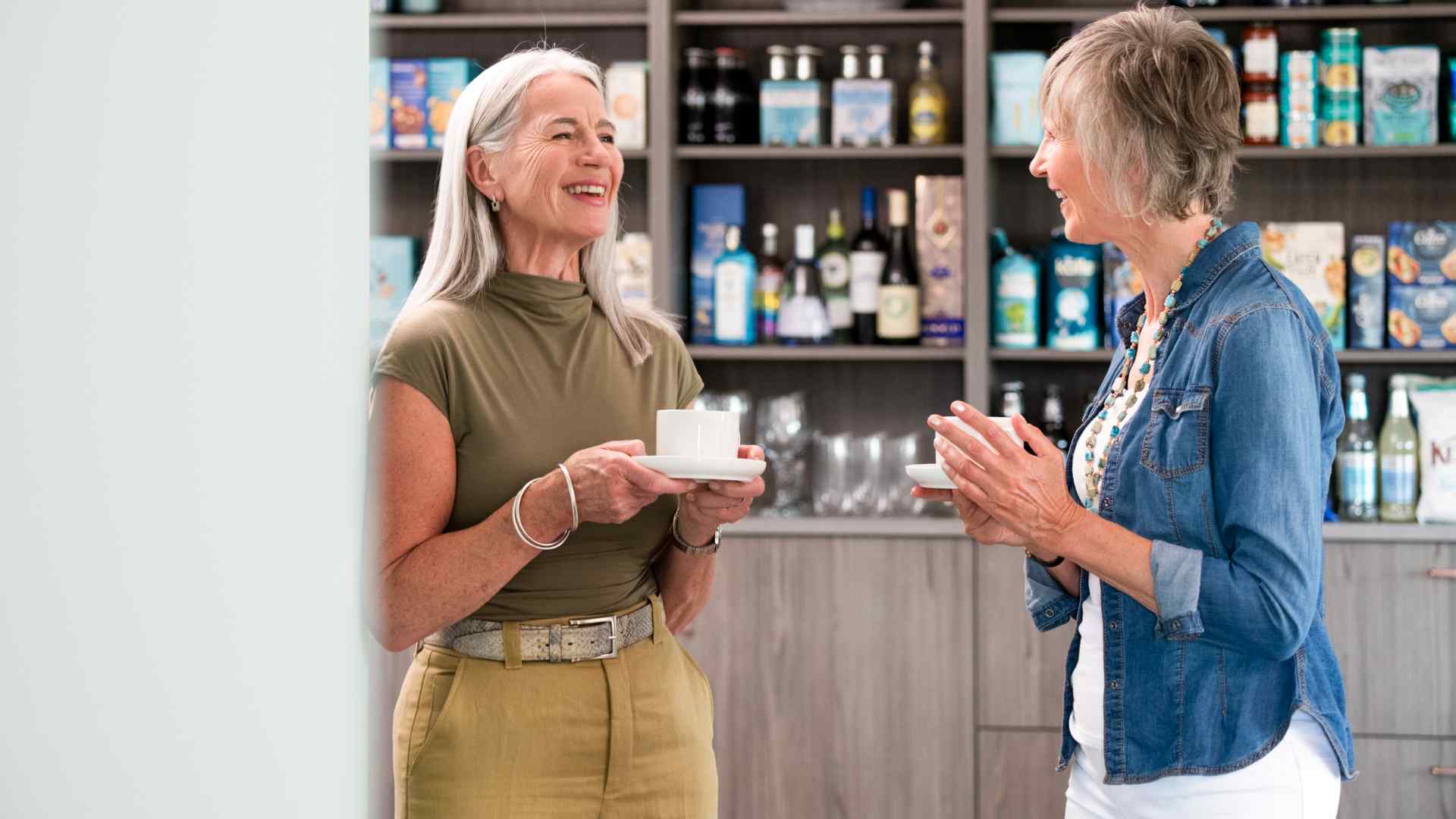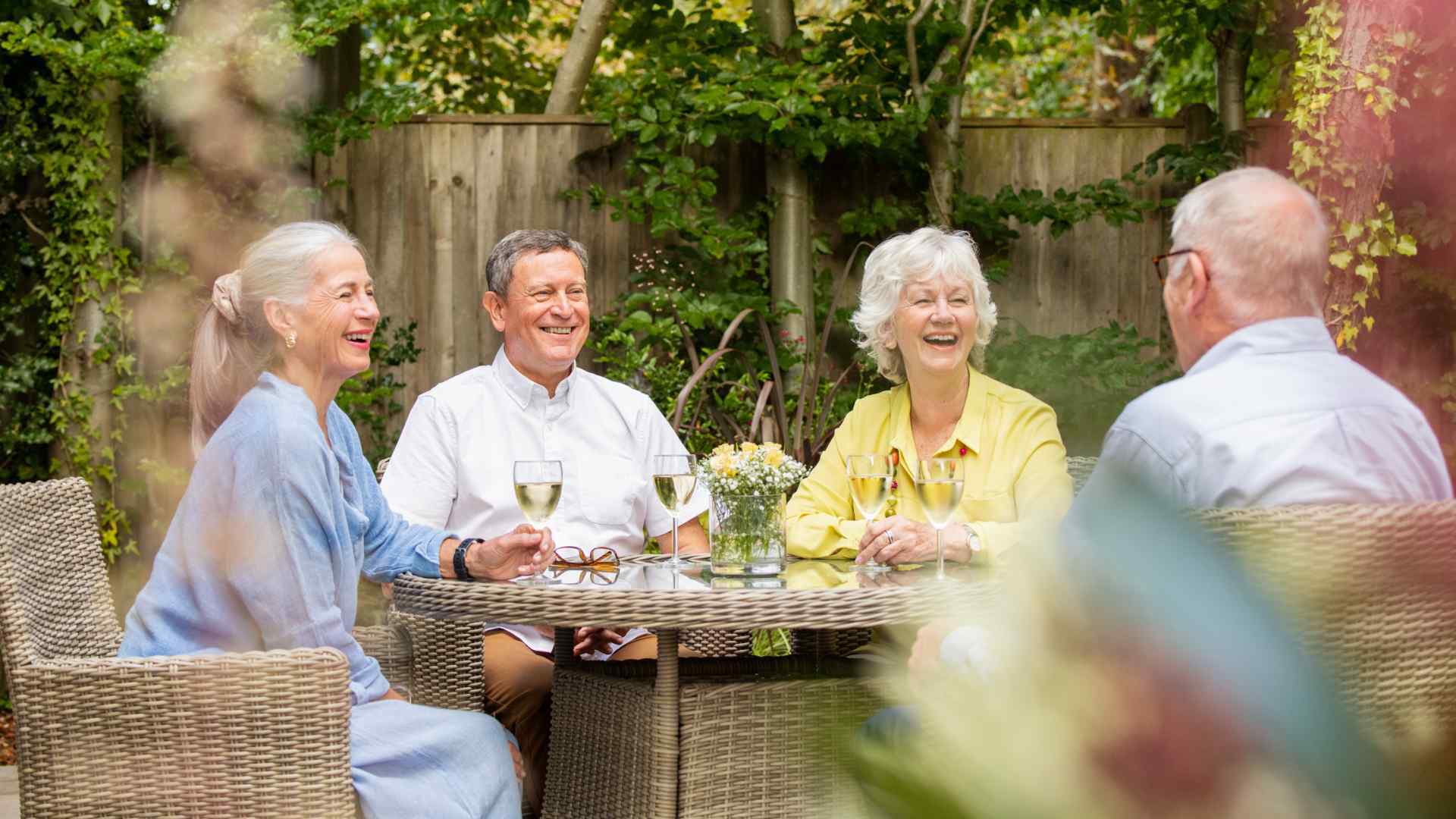
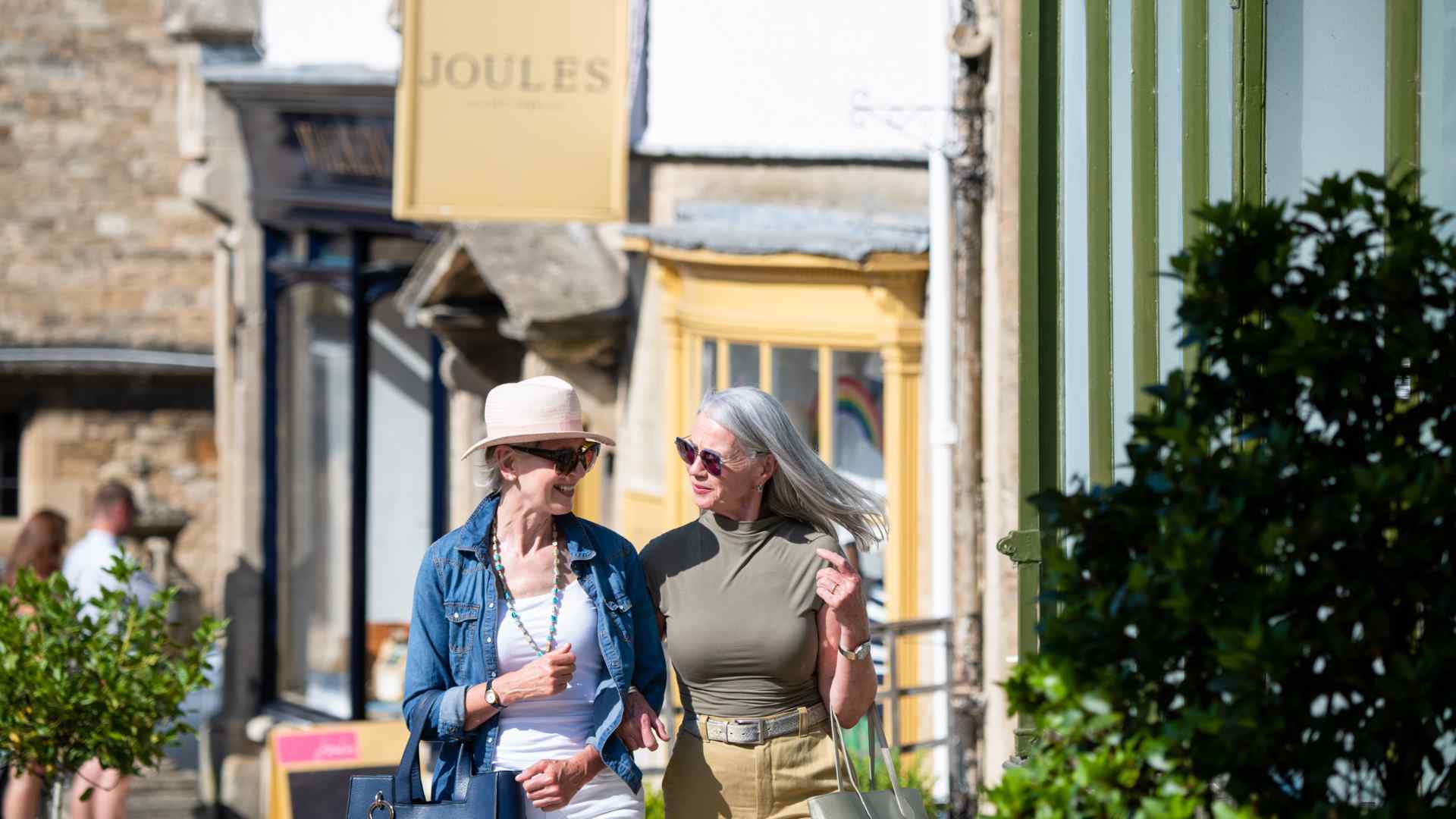
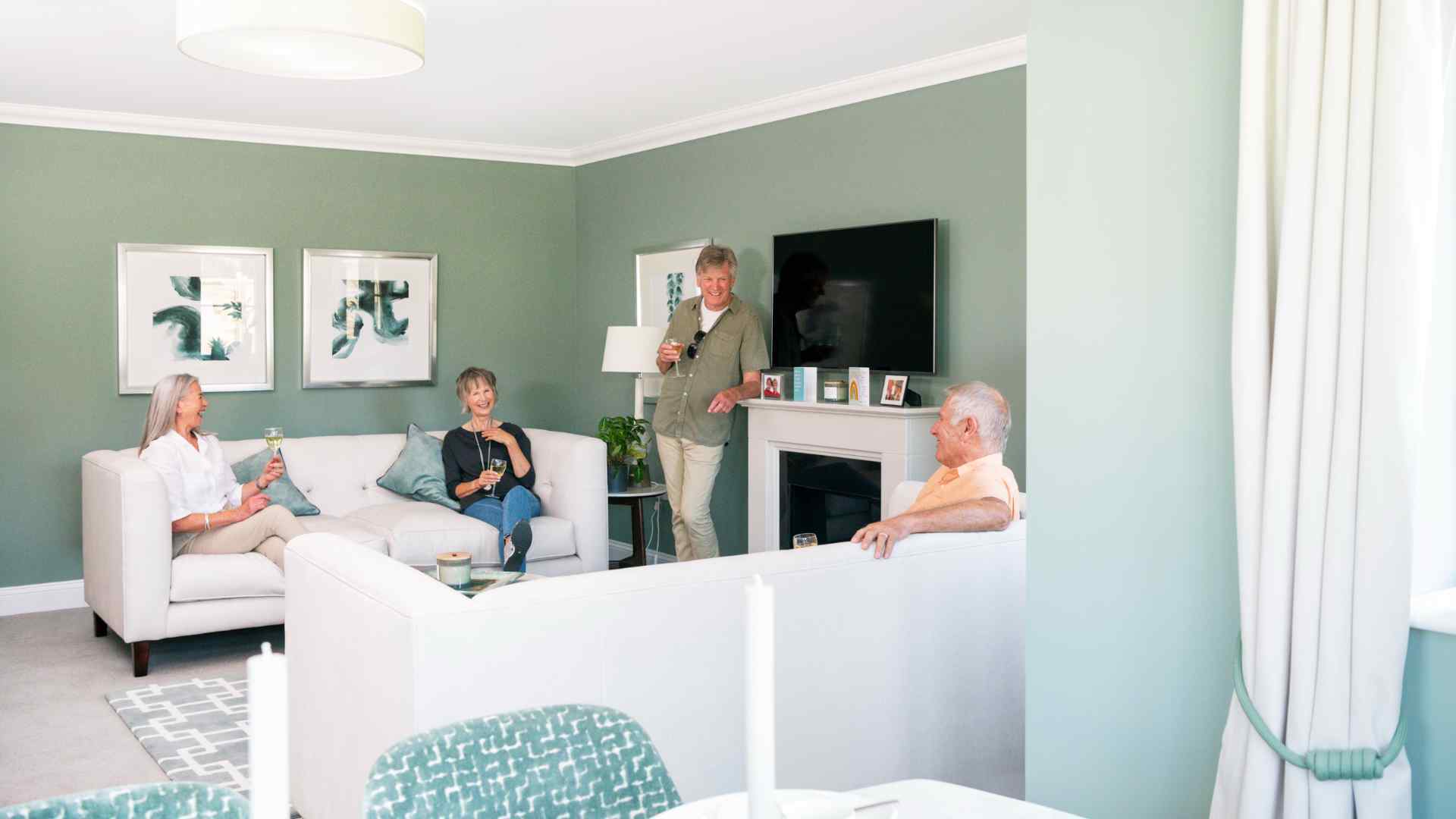
Research reveals that friendship is strongly related to happiness, mental health and longevity in later life.
Having friends raises your sense of connection, belonging and purpose, reduces stress, improves self-confidence and feelings of self-worth and helps you cope with challenging events including death of a loved one, divorce or illness but how do we make friends in adulthood?
There’s no doubt that, as we grow older, however, making friends becomes more difficult. Once, we made friends with other parents at the school gate, with people at work and with people in the places we used to socialize.
As we age, our social circles shrink, we tend to go out less, meet fewer people and become more selective about our friendships. It’s natural to prioritise family, being on hand to help look after grandchildren or younger family members.
All this can result in feelings of loneliness: it’s a sad fact that, according to Age UK, almost 4.5 million people admit to being lonely and, of those, half-a-million claim it stops them going out and about in everyday life and just over 6 million say even just a few minutes of conversation each day makes a difference. The good news is that it’s never too late to make new friends – and here are a few ideas on how to meet new people.
After moving to a new Beechcroft development, one homeowner commented that he’d spoken to more people in one week than he had in the nine years he’d lived in his previous home.
The possibility of making new friends is just one of the benefits of moving to a retirement development. You’ll soon find yourself at the heart of a community of like-minded people, with the opportunity to make new friends whilst maintaining your privacy and independence.
Whether you just want to enjoy coffee and a chat with your neighbours or if you’re hoping to meet someone to enjoy country walks, evenings at the theatre, shopping trips or days out, there’s sure to be someone with similar interests within your retirement community.
Owning a dog certainly improves your health and well-being and it’s a great conversation starter.
People tend to see dog owners as friendly and approachable and other dog owners are always keen to chat.
If you have a young dog, there are training classes – and you’ll certainly meet other people there. Having a dog means getting out and about more and pet ownership has been proved to reduce blood pressure, improve your exercise levels and add routine to your retirement. And, of course, your dog will provide companionship.
If you don’t want a dog of your own, perhaps you could volunteer at your local dog rescue centre or foster a dog that’s waiting for a new, permanent home.
Take a look at www.dogstrust.org.uk/rehoming/our-centres for a local branch.
Education is a great way to meet new people and have an active retirement. If you investigate the courses on offer at your local college or community education centre, you’ll find plenty of low-cost classes suitable for mature learners from art, languages and photography to cookery, creative writing, crafts and computing.
Your local Age UK may offer social activities with clubs and classes you can join. The University of the Third Age (U3A), is a UK wide movement of over 1,000 charities that offer learning activities for the retired. Amongst the courses on offer in the Southeast region of the U3A you’ll find Art and Mythology, Latin, Philosophy, Politics and Science along with Bridge, Mah Jong, Patchwork, Crochet and Photography.
To find our more about the U3A, please take a look at our blog ‘A Guide to the University of the Third Age’.
Whether you are interested in crafts, creative writing, fishing, bird watching, history or reading, you can be sure that there will be a local group or club to suit you.
Your local bookshop or library may run a book club which will introduce you to books you may not otherwise read – and you’ll have a chance to discuss the book of the month with other keen readers over coffee and cake.
If you’ve ever fancied writing short stories, poetry, plays or even a novel or memoir, there are countless writers’ groups, classes and courses across the country.
Joining an archaeological society can be very rewarding – you may be able to join a dig, listen to a lecture or talk and learn from more experienced archaeologists.
One of the best places to find local groups like these is meetup.com. Whatever your interest, there are thousands of people who share it – and if you sign up to Meetup, you’ll be able to browse through a list of events in your area.
Even if you’ve never been on stage nor had the inclination to do so, you can still get involved with local productions.
Local amateur dramatics societies are always looking for people to help with costumes, hair and makeup, props, fund raising, set construction and selling programmes – as well as actors.
You’ll make friends of all ages and from all backgrounds and have the satisfaction of seeing productions come together.
There’s a list of amateur dramatic societies in Oxfordshire online at www.oxfordshiredramanetwork.org.
If you live in the Tunbridge Wells area, you will find information on www.twods.org and if you’re in Surrey, you’ll find links to various groups on www.dramagroups.com/groups/england/surrey.
Working and looking after a family often doesn’t leave much time for sports but once you’ve retired, you’ll have more leisure time - especially if you’re living in a retirement property that’s easy to maintain.
Retirement could be the perfect time to take up a sport you used to enjoy or to try a new activity. In every area, you’ll find bowling, cycling, walking, tennis, golf, cricket or walking football.
Dance classes can be a great way to meet people and there are so many day and evening classes to try – including modern jive, swing, ballroom, belly dancing, salsa, tango or other ballroom and Latin styles.
Try yoga or Pilates or a fitness class but remember that community hall classes tend to be the most friendly and welcoming and if you try a daytime class, you’re more likely to meet other retired people.
For ideas on classes, take a look at our blog on ‘The Best Fitness Classes to Try in Retirement’.
Many organisations welcome volunteers including museums, stately homes, charities, hospitals and churches.
Volunteering can be a great way to make new friends with people who have a shared goal and it can be both interesting and satisfying.
We have produced a blog on ‘The Best Places to Volunteer in Retirement’ which may prove useful.
If you have joined a club, group or society and are ready to meet new people, you may still be uncertain about how to progress the friendship so the following may help:
We know you value your independence but with a community of like-minded neighbours, you’ll have convivial company on hand and the opportunity to forge firm and lasting friendships.
Find your retirement community29 May 2025
There are at least 12 different terms to describe retirement housing including extra care housing, housing with care, independent…
Read more9 May 2025
If you enjoy travelling within the UK, there are plenty of financial benefits related to retirement. It’s easy to leave the car…
Read more7 April 2025
From beautiful landscapes to excellent transport links, Kent offers the best of both worlds - convenience and charm - along with…
Read more